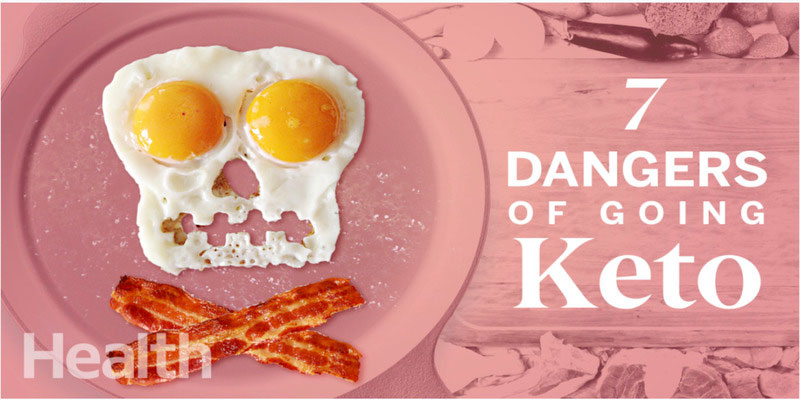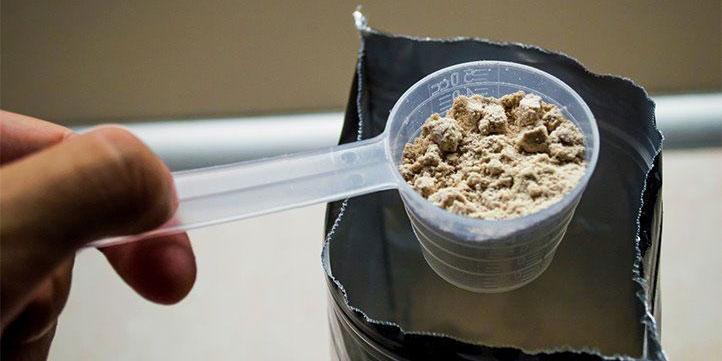
Side Effects of Going Keto, the ketogenic diet, sometimes known as the "keto" diet, seems to be a low-carb eating plan that promotes using fat for energy instead of glucose. Ketosis, known since about 500 BC, was first used in modern medicine in the 1920s to treat drug-resistant epilepsy, especially in youngsters. The diet has received recent medical praise for treating various neurological disorders, including Alzheimer's, Parkinson's, stroke, brain damage, and migraines. After Dr Robert Atkins popularized a low-carb, high-fat, high-protein diet in the 1970s, the ketogenic diet became widely used to shed excess pounds.
Limitations Of The Keto Diet
Before beginning a ketogenic diet, Bowman recommends that people should consult with their primary care physician first. Anyone who is contemplating making big alterations to their diet should take this good advice into consideration. She goes on to say that even if a physician recommends the ketogenic diet, it is possible that it is not a healthy eating plan to follow for an extended period of time. In light of this restriction, those who suffer from any of the following medical conditions should carefully assess whether or not the ketogenic diet is appropriate for them.
Changes To Blood Composition

Several shifts in blood composition occur in people on that ketogenic diet due to dietary changes and the body's adaptation mechanisms to deal with the decreased carbohydrate intake. For instance, fat and cholesterol levels in the blood tend to be higher than usual. Most patients (over 60%) have abnormal lipid profiles, with over 30% also having abnormally high cholesterol. Modifications towards the patient's diet may be necessary if these alterations significantly cause worry for the child's health. In place of polyunsaturated fats, for instance, saturated fats might be used. In some circumstances, a diet with a lower fat ratio to carbohydrates and proteins may be recommended.
Long-Term Consequences
When people follow the ketogenic diet for an extended period of time, some of the diet's potentially harmful side effects become more pronounced and have a more significant impact on their lives. It is anticipated that approximately 5 percent of people who follow a diet will develop kidney stones, which is referred to as nephrolithiasis in the medical field. However, it is treatable, and the standard recommendation is to maintain a healthy diet. Hypocitraturia and hypercalciuria are conditions that manifest themselves when acidosis leads to the demineralization of bone. These conditions have been linked to the formation of kidney stones. Having urine that has a low pH could also raise the risk of getting kidney stones.
Loss Of Salts
Even in the initial weeks of adopting a ketogenic diet, you may notice a shift in how your body handles its fluids. When glycogen stores are depleted, water is released into circulation and excreted in the urine. Some of the body's salts may be lost along with the fluid when someone often urinates or sweats. Therefore, you may sweat more and lose salt and juice when you enter and remain in ketosis. Be sure to drink plenty of water throughout the day. Hydration is best achieved by water. However, milky teas and coffees are acceptable alternatives.
Keto-Flu

Some individuals may find it difficult to adjust to a ketogenic diet initially. At the same time, other people have an easier time adjusting. While glucose is a readily available energy source, your organism may have been used to consuming it; thus, a metabolic shift is required. Keto-adaptation describes this metabolic change. After the body has acclimated to the ketogenic diet, some individuals report feeling more alert and focused than before they started the diet. On average, keto-adaptation takes approximately four weeks, although many reports are feeling better sooner.
Conclusion
Nowadays, everyone is singing the praises of the ketogenic diet. But if you're thinking about trying this diet, you must know what to expect from it in terms of negative impacts. To achieve the metabolic state of ketosis, the goal of the ketogenic diet, one must consume an exceptionally low-carbohydrate, high-fat diet. When you do this, your body's fat-burning capabilities are enhanced. Some specialists have recently claimed that the ketogenic diet may lead to libido abnormalities. Dr Nancy P. Rahnama, a bariatric internal medicine specialist in California, said, "The ketogenic diet may undoubtedly result in a decline in libido upon commencing the diet since the dieter will be suffering symptoms including carb withdrawal and perhaps the keto flu."



